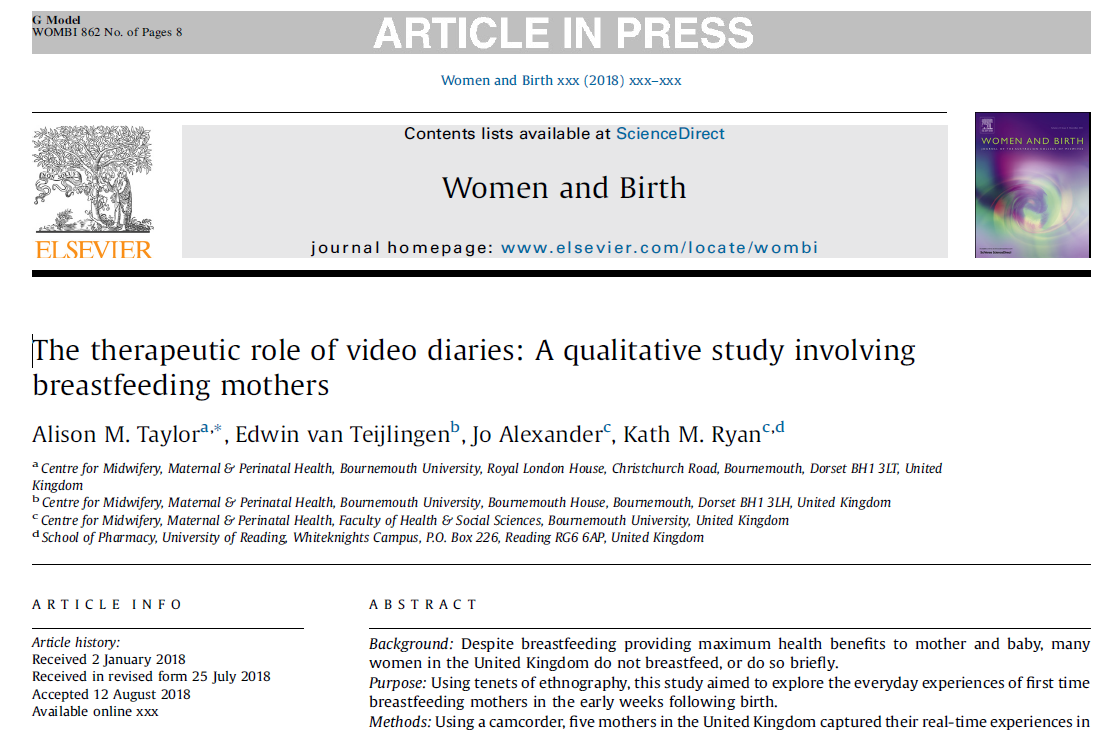 Congratulations to Dr. Alison Taylor whose PhD paper ‘The therapeutic role of video diaries: A qualitative study involving breastfeeding mothers‘ has just appeared online [1]. This paper, in Women and Birth (published by Elsevier), was co-authored with her PhD supervisors Prof. Emerita Jo Alexander, Prof. Kath Ryan (University of Reading) and Prof. Edwin van Teijlingen.
Congratulations to Dr. Alison Taylor whose PhD paper ‘The therapeutic role of video diaries: A qualitative study involving breastfeeding mothers‘ has just appeared online [1]. This paper, in Women and Birth (published by Elsevier), was co-authored with her PhD supervisors Prof. Emerita Jo Alexander, Prof. Kath Ryan (University of Reading) and Prof. Edwin van Teijlingen.
The paper highlights that despite breastfeeding providing maximum health benefits to mother and baby, many women in the United Kingdom do not breastfeed, or do so briefly. Alison’s study explored in a novel way the everyday experiences of first-time breastfeeding mothers in the early weeks following birth. Five UK mothers were given a camcorder to capture their real-time experiences in a video diary, until they perceived their infant feeding was established. This meant that data were collected at different hours of the day by new mothers without a researcher being present. Using a multidimensional approach to analysis, we examined how five mothers interacted with the camcorder as they shared their emotions, feelings, thoughts and actions in real-time. In total mothers recorded 294 video clips, total recording time exceeded 43 hours.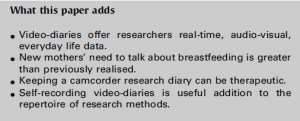
This paper focuses on one theme, the therapeutic role of the camcorder in qualitative research. Four subthemes are discussed highlighting the therapeutic impact of talking to the camcorder: personifying the camcorder; using the camcorder as a confidante; a sounding board; and a mirror and motivator. The paper concludes that frequent opportunities to relieve tension by talking to “someone” without interruption, judgement or advice can be therapeutic and that more research is needed into how the video diary method can be integrated into standard postnatal care to provide benefits for a wider population.
Alison is Senior Lecturer in Midwifery and a member of the Centre for Midwifery, Maternatal & Perinal Health.
Reference:
- Taylor, A.M., van Teijlingen, E., Alexander, J. & Ryan, K. The therapeutic role of video diaries: A qualitative study involving breastfeeding mothers, Women Birth (2018), (online first) https://doi.org/10.1016/j.wombi.2018.08.160
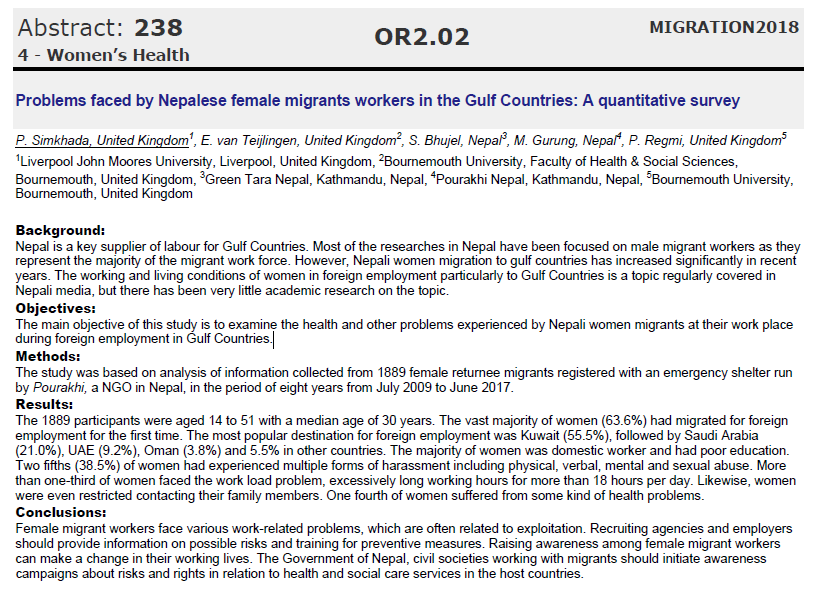



 All this week, The Arts by the Sea Festival large outdoor screen will host documentaries and short films showcasing BU research which explore everything from food poverty to human computer interaction, the genetics of mental health, and the experiences of older male carers.
All this week, The Arts by the Sea Festival large outdoor screen will host documentaries and short films showcasing BU research which explore everything from food poverty to human computer interaction, the genetics of mental health, and the experiences of older male carers.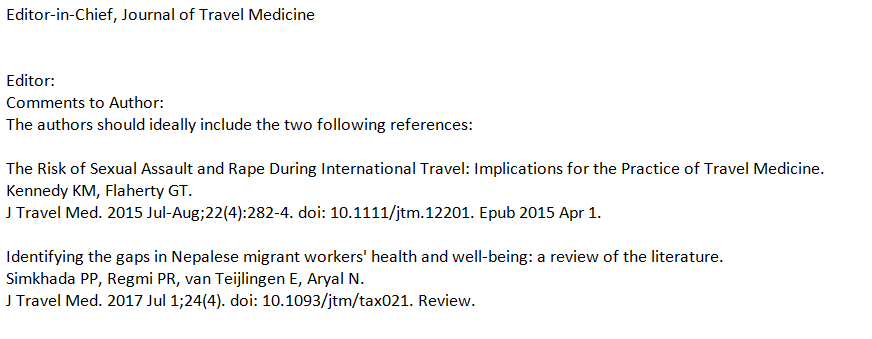
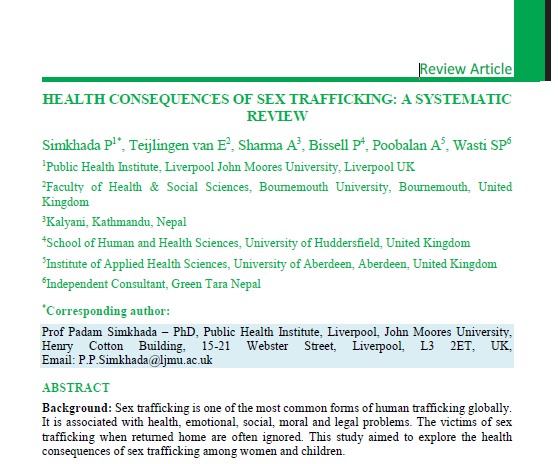
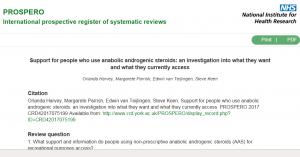
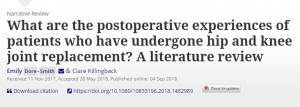
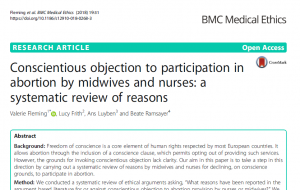


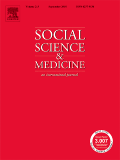


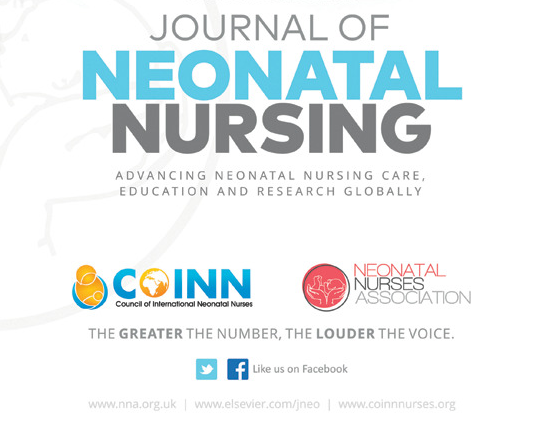
 Following three successful conferences in Paris, France (2015, 2016) and St. Gallen, Switzerland (2017), we are pleased to announce that the 4th International Conference for Marketing in the Insurance industry (ICMI) will be held at the Executive Business Centre, Bournemouth University on the 13th and 14th September 2018.
Following three successful conferences in Paris, France (2015, 2016) and St. Gallen, Switzerland (2017), we are pleased to announce that the 4th International Conference for Marketing in the Insurance industry (ICMI) will be held at the Executive Business Centre, Bournemouth University on the 13th and 14th September 2018.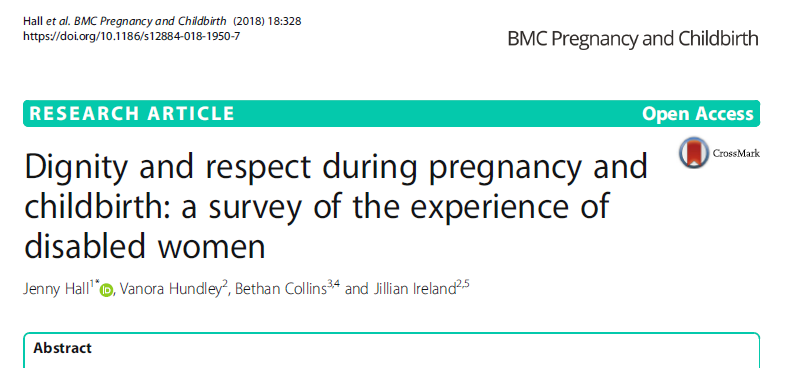











 BU attendance at third annual GCPHR meeting in June
BU attendance at third annual GCPHR meeting in June Interactive Tangible and Intangible Heritage Applications – BU student work featured in new book chapter
Interactive Tangible and Intangible Heritage Applications – BU student work featured in new book chapter Second NIHR MIHERC meeting in Bournemouth this week
Second NIHR MIHERC meeting in Bournemouth this week MSCA Postdoctoral Fellowships 2025 Call
MSCA Postdoctoral Fellowships 2025 Call ERC Advanced Grant 2025 Webinar
ERC Advanced Grant 2025 Webinar Horizon Europe Work Programme 2025 Published
Horizon Europe Work Programme 2025 Published Horizon Europe 2025 Work Programme pre-Published
Horizon Europe 2025 Work Programme pre-Published Update on UKRO services
Update on UKRO services European research project exploring use of ‘virtual twins’ to better manage metabolic associated fatty liver disease
European research project exploring use of ‘virtual twins’ to better manage metabolic associated fatty liver disease